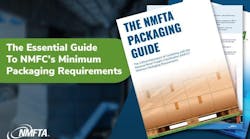While merger and acquisition (M&A) activity within the global transportation and logistics industry declined overall in 2016 versus 2015; down 6% in volume to 225 deals with 31% lower value at $122 billion – the value of deals made within the trucking sector took off like a rocket, according to a new report by consulting firm PricewaterhouseCoopers (PwC).
The trucking, shipping and passenger air categories were the sectors that contributed to the majority of “deal value” in 2016, with trucking contributing the most at $34.5 billion or 28%, followed by shipping (24%) and Passenger Air (19%).
PwC added that the trucking category had a “paramount year” in terms of deal value and average deal size, closing out 2016 with the largest average deal size at 141% higher compared to 2015.
A few other deal-making trends highlighted by PwC in its report include:
- The second half of 2016 had a total deal value of $53.5 billion, 22% lower than the first half of 2016. Deal volume in the second half increased by 6%
- The Asia and “Oceania” regions (“Oceania” covers all of Micronesia, Fiji, and all of Polynesia except New Zealand) accounted for 52% of total deal volume and 60% of total deal value in 2016.
- In terms of so-called “mega-deals” valued at over $1 billion, some 19 were concluded in the transportation and logistics sector in 2016, down from 28 in 2015. Transactions with announced value greater than $1 billion contributed to 60% of total deal value in 2016, compared to 68% in 2015, PwC added.
- For 2017, the firm expects parcel, courier and express companies to be center stage of M&A activity due to e-commerce growth and new technologies. Consolidation will also continue as shipping, air cargo operations, and railroads struggle with overcapacity.
- New technologies will likely play an ever larger role in disrupting the sector, PwC added, pointing to Uber’s $680 million acquisition of the self-driving truck company Otto in August 2016.



